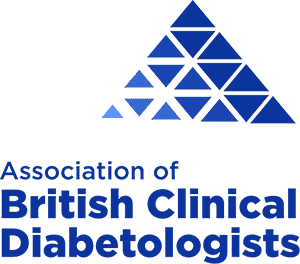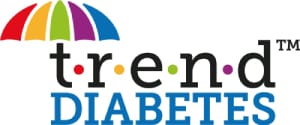Winner
Making connections youth engagement toolkit
by Diabetes Scotland
To improve the overall clinic experience for young people with Type 1 diabetes and address issues with disengagement and poor glycaemic control in this group, Diabetes Scotland invited people aged 16-25 years old living with the condition to participate in developing a ‘Youth Engagement Toolkit’. The aim was to develop and deliver innovative youth engagement training and supportive materials for HCPs working in diabetes clinics in Scotland to encourage a more supportive and accommodating environment for youngsters at clinics. They were able to influence the content and direction of the toolkit and were supported to co-deliver workshops with HCPs, adding authenticity and ensuring meaningful participation. Young people were also encouraged to run local online groups to promote peer-support and shared learning. Initial feedback has been overwhelmingly positive.
Judges comment:
“Judges commented that this was an extremely worthwhile and much needed project, which has made a huge impact on the young people it aims to serve. It is a good, collaborative approach and the judges really applauded the inclusion of youth workers.”
Commended
Introducing joint multi-disciplinary clinics for children with T1DM and coeliac
by Musgrove Park Hospital
In 2014 the team introduced a joint multi-disciplinary clinic consisting of the paediatric diabetes team, a gastroenterology clinician and specialist dietetic colleagues with knowledge and experience of both chronic conditions. These clinics have allowed the elimination of clinical care variability and equity factors and also to reduce the frequency of speciality clinics visits for children and families (reducing cost, travel time and parents taking time off from work and reduction in the time for children away from their educational setting). The programme amalgamated the investigations required to minimise venesection and reduce costs of multiple blood tests, creating more hospital follow-up appointment spaces for children requiring specialist gastroenterology and dietetic expertise. Feedback from parents, carers and young people was positive.
Judges comment:
“The judges really liked that patients were being consulted and each patient was assessed as an individual and not just part of a programme. It deserves praise for putting the patient at the centre of the initiative.”
Commended
Helping children and families increase confidence in managing blood glucose
by University College London Hospital
The intervention to improve overall metabolic control and reduce the daily burden of living with Type 1 diabetes was developed in collaboration with children, young people and families. It took the form of workshops covering: how insulin and food affect blood glucose, potential impact of long term high HbA1c, effects of low and high blood glucose on daily living, self-management techniques, and talking about diabetes with confidence. Preliminary results show a reduction in young people’s worries about diabetes, increased sharing of diabetes responsibility among families, and a decrease in hypoglycaemic episodes. Participants were enthusiastic and positive and would recommend the workshop. Parents were impressed hearing the level of knowledge their children had about diabetes. At the end of the groups a leaflet written by the young people was produced.
Judges comment:
“This was a well-thought out project; a great idea and clearly defined. Judges liked that it was run by psychologists and that it got families to work together.”
Finalist
CYPWMDN diabetes awareness education for schools – regional study day
by Birmingham Children’s Hospital/East and West Midlands Paediatric Networks
With the increase in incidence of Type 1 diabetes in children and young people, diabetes teams are under increasing pressure to support school staff with the day-to-day management of their pupils with diabetes. To utilise the resources available regionally, the CYPWMDN steering group developed a study day to provide basic diabetes awareness education to all school staff in the West Midlands. This new initiative is available to nursery, primary, secondary schools and college staff – and attendees found the day ‘enlightening, informative and engaging.’ The steering group believes an ongoing programme of awareness days will raise the profile of diabetes within the educational sector and meet the expectations of both school staff and families of young people with diabetes in managing this chronic condition.
Judges comment:
“It is great that this project is regional as this will reduce variability and it would be great if it was taken up nationally.”
Finalist
Inside out paediatric diabetes – a 360 degree approach
by Imperial College Healthcare NHS Trust
The team developed a culture of equality and reciprocity with its users (co-production) and a series of co-design sessions provided patients with the opportunity to construct a vision of their ideal service. Recurring themes included a venue that is more conducive to learning; hands-on support when carrying out calculations of carbohydrate content during actual food preparation and service; the involvement of other family members and several other agencies involved in the child’s care; and a greater time allocation for appointments. Through the training of schoolteachers, teaching assistants, catering staff – as well as parents and siblings, or foster carers, social workers and young person practitioners – a solid foundation is laid down for the seamless management of this chronic, lifelong condition.
Judges comment:
“Liked how it focused on the child and the mixed study day format – HCPs, parents and children can all learn from each other – a very laudable project and they loved the learning piece.”
Finalist
Improving children and young people diabetes services through co-production
by South East Coast & London Paediatric Diabetes Partnership
This project is a co-production between commissioners and providers working with The South East Coast and London Paediatric Partnership parent group, part of the National Children and Young People’s (CYP) Diabetes Network. Its aims included sharing decision making during clinical consultations, involving patients in the design and commissioning of future health services and evaluating their care. The parent and CYP representatives group initiatives took in the creation of a closed, monitored Facebook group for parents, organising meetings for families to come together to share experiences and offer peer support and dissemination of surveys seeking parent views and information for parents. This has led to more knowledgeable, satisfied families who come together to offer support to other parents and feedback to providers of paediatric diabetes services.
Judges comment:
“The children’s panel element was inspiring and well-structured. It is an extremely worthwhile project and much needed. It is great to see modern day communications being used to effectively engage with patients and parents.”














